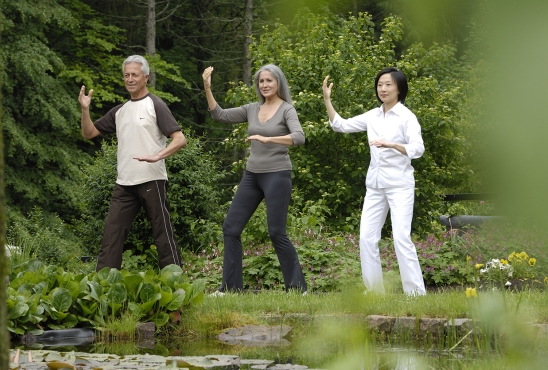"Healthcare meets Tourism": Concept decides real estate type
 |
|
Munich (July 16, 2010). The boundaries marking the difference between a hotel offering medical services, private clinic offering hotel services and a public clinic with hospitality services are fluid. The greater the focus on medical services, the more expensive the investment. Siemens'' Hospitality One identified eight different categories of medical and hospitality combination in one study which was cited at the "Healthcare meets Tourism" symposium in Munich two weeks ago. Case studies conducted by two successful health hotels showed how the offer must be shaped in this young niche. Investors remain cautious though: The market is still not transparent enough, though the potential is meanwhile huge.
The hospitality division within the Siemens Group has launched a study together with the Ecole hoteliere in Lausanne in order to gauge the potential in this newly awakening health (real estate) market. Eight real estate concepts are identified by the study, as Andreas Osthushenrich, Vice President Operations Manager at Siemens One Hospitality explained:
1. Hotels with medical services
2. Medical spas
3. Health resorts and hotels with integrated medical services and facilities
4. Private clinics with hotel standards
5. Patient hotels
6. Private clinics without A&E department
7. Private clinics with A&E department
8. Public clinics with their own hospitality services
"Investors switch sides between categories 3 and 4," Osthushenrich says, "it''s here that they move from the hotel to the health sector." A country comparison within the study has shown: Germany, Austria and Switzerland have the strongest presence of medical services.
The greater - from category 1 to 8 - the requirements of the concept change, the more exact the real estate must be planned from the very beginning. "In terms of energy, investors and operators can make savings by using ''joint'' infra-structure," Osthushenrich explains, "as far as IT is concerned though, requirements for data security are much higher in medicine than they are for hotel services." Security is then also very cost intensive, especially in clinics. "Planners for health real estate must always think in terms of the worst case scenario for technical procedures - also in terms of whether the property can be later converted and dedicated to some other use.
The health guest books medical services
Whilst some are still compiling their analyses and doing their calculations, demand is already growing. "The paradigm shift in the health care market has long since taken place," Matthias Buchholz claims, health specialist consultant with Kohl & Partner, backed by Martin Schaffer, CEO of Kohl & Partner, Vienna. "The guest/patient is already king. This market is meanwhile a demand market." The drivers of this development are known: the demographic development; a health system which is becoming increasingly privatised; the trend of public health insurance companies to is reimburse less; that guests/patients are developing a much better sense of medical quality and price - and all this has meant growth of health and medical tourism...
"The wellness guest books recuperation, the health guest books medicine," the two consultants say. For them, patient/clinic hotels are the interim stage in the current structure transition. They attract recovering patients and so reduce the length of stay and the costs in hospital. Schaffer and Buchold warn though: "Developing a patient hotel is much more complex than a general hotel!" Alone the legal classification (e.g. clinic hotel) changes requirements on buildings (higher ceilings), on technology (more monitoring technology), personnel (better qualified of staff are more expensive). "That can double investment costs in relation to an ordinary hotel," Bucholz explains.
 |
|
| The future: Senior health guests ask for intensive personal care and entertainment. / photo: Regena |
No success if hotel atmosphere is missing
Success comes when an atmosphere is created which doesn''t smack of hospital and which doesn''t constantly remind the guest of his or her illness. Patient/clinic hotels must create a hotel atmosphere, must adjust their staffing requirements and market themselves together. "In our experience, such concepts only work where they are located within around 30 to 50 minutes of an international airport," Schaffer said. The reason is the quick reaction times needed where operations are required.
It is sufficient for care hotels, on the other hand, to be located within large catchment areas with good travel connections. This concept requires qualified hotel and care personnel, a doctor available around the clock, as well as a real hotel atmosphere. Not only cooperation with the investor is needed here, but also good relations with the local community. Care hotels require target group specific leisure activities. Martin Schaffer summarises as follows: "None of these factors mean that it has to be a 5-star product! Whatever segment the hotel is positioned in, the product must always be top!"
At the symposium "Healthcare meets Tourism", participants asked why health real estate needed building at all. After all, in Germany, as in Austria, there''s a dizzying surplus of hospitals. Why just not use these? Presumably, such an undertaking couldn''t be implemented so quickly as this would also involve a change of thinking in the healthcare and political system.
Case studies: Crystal clear profiles and theme packages
Until then, pioneers of health concepts and health real estate have the opportunity to make good money. Two case studies confirm this: the Regena Health Resort in Bad Brueckenau and the Hotel Meersinn Artepuri in Binz on the German isle of Ruegen. The private hotel Regena has moved slowly into this segment over the last 37 years. Today, five doctors (an internist, a GP, a dental specialist and traditional Chinese medicine specialist) offer a mix of services from traditional school medicine as well as homeopathy and alternative medicine used by two main target groups: The 45+ age group booking in to the hotel several times a year for 4.5 days for wellness and prevention, and the 65+ age group looking for intensive personal care plus entertainment. Regena Director, Joachim Hunger, sees the basis of the hotel''s success in its crystal clear profile and its refusal to offer "nonsense treatments".
After four years, the Meersinn Artepuri in Binz on the German isle of Ruegen achieved break even, Dr Alex Witasek reports, the hotel''s medical supervisor. Witasek came to the hotel from the legendary Lanserhof in Austria and practises his own variation of FX Mayr and prevention on the German Baltic coast. On average, the Artepuri guest stays 11 days and spends between 150 and 200 EUR per day for treatments. The guest books a "theme package" and no individual services. "That just doesn''t work," Witasek says.
Don''t miss the right moment
the concept. Concept and target group decide on location, premises, equipment and personnel costs. Given that demand is still building up in the market, there is still time to look closely at the subject. It''s important to choose the right moment: Those waiting too long with investments could be bulldozed by demand and - in an effort to profit from the wave of demand - make expensive errors. This was true of wellness.
Kohl & Partner, the initiator of the first symposium on health real estate in Germany, will continue with the workshops they held previously in Vienna and Salzburg with new, extended accents. / Maria Puetz-Willems
To print this article you have to be registered and logged in for newsletter, visitor or subscription.





